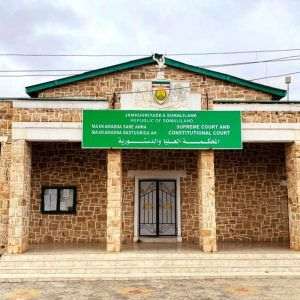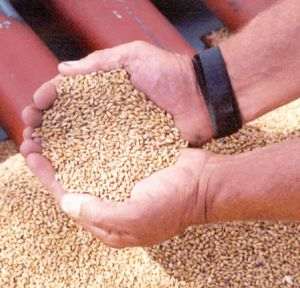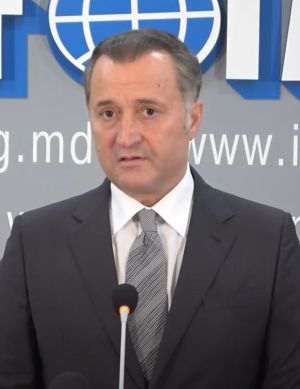The Roşia Montană scandal originates in 1997, when the authorities granted the concession license for the exploitation of gold and silver ores in the area to the state company Minvest Deva, for a period of 20 years. After four months, the license was transferred to the majority private equity company Euro Gold Resources, which in 2000 changed its name to Roşia Montană Gold Corporation (RMGC). The company was established specifically for the exploitation of the Roşia Montană deposit. The company's shareholders were the Canadian company Gabriel Resources and Minvest Deva. The Canadian company was controlled by important names in world business, such as John Paulson, Thomas Kaplan and Beny Steinmetz, sentenced to 5 years in prison in the "Băneasa Farm" case. Currently, Societatea Roşia Montană Gold Corporation is controlled by the Canadian company Gabriel Resources with 80.46% of the share capital. The Romanian state, through the company Minvest Deva, has a 19.31% stake in RMGC.
According to Gabriel Resources representatives, 300 tons of gold and 1,600 tons of silver can be extracted from the Roşia Montană deposit. Their value was estimated, in 2013, at over 16 billion dollars.
In 2001, RMGC draws up the first feasibility study for the Roşia Montană mine and proposes surface exploitation in four open quarries: Cetate, Cârnic, Jig-Văidoaia and Orlea, with a capacity of 20 million tons of minerals processed annually. RMGC's proposed gold ore processing method is the use of cyanides - over 200,000 tons during mining. The area covered by the project is 1,600 hectares of land, of which the extraction quarries occupy over 700 hectares. On another 700 hectares, settling ponds were to be set up, where the tailings loaded with cyanides and heavy metals resulting from the processing had to be stored.
The area proposed for the development of the mining project represents approximately 25% of the territory of the commune of Roşia Montană and that is why RMGC purchased, with over 70 million dollars, starting in 2002, 620 of the 794 households located in the impact area of the project.
However, that company did not receive all the authorizations necessary to start the project, and those received were definitively abolished by the courts in our country.
On July 11, 2013, Prime Minister Victor Ponta tried to revive this project and included it, among other investment projects, in the programmatic document pompously titled "The National Plan for Strategic Investments and Job Creation".
The draft law stipulates that exploitation would begin in November 2016, after the zonal urban plan would have been approved by the end of 2013. The majority shareholder of RMGC would transfer, in stages, free of charge, to the minority shareholder controlled by the state Romanian a 5.69% share of RMGC's share capital. The indirect participation of the Romanian state would thus have reached 25%. The mining royalty applicable to the mining project would have been 6%, with the option of the Romanian state to request its payment in kind.
On August 27, 2013, the draft law regarding some measures related to the exploitation of gold-silver ores in the Roşia Montană perimeter was adopted in the government meeting to be sent to the Parliament. However, in December 2013, under public pressure, following extensive street demonstrations in all the country's large localities, the project on the Mining Law failed in Parliament.
Following this decision, in July 2015, representatives of Gabriel Resources opened the dispute at the International Center for the Settlement of Investment Disputes (ICSID), under the Canada-Romania and Great Britain-Romania bilateral investment treaties.
Regarding the situation since then, former prime minister Victor Ponta recently told DC News: "I can write a book on this subject. The scandal was in 2014, before the elections. Mr. Iohannis said very clearly: "I will never accept Roşia Montană-type projects". Not like the scoundrel from Ponta who wanted to do Roşia Montană. I know that I was in London, I listed Romgazul and there were some protestors with Roşia Montană. Now let him give that money that was with Roşia Montană. (...) You have to be very hard-headed to have some natural resources and not exploit them. Obviously, exploiting, preserving the environment, taking as high royalties as possible, that's another thing, but not saying no. It was said that we protect the galleries. I was in those galleries (...), when the miners closed, in 2013, and I promised them that I want and support this. The PNL, then, was against it. Mr. Iohannis it was against and nothing was done. (...) I looked, in 2018 the topic was discussed in the CSAT meeting; now we are in 2024, and the only member of CSAT since then, that I looked at the pictures, is also Mr. Iohannis. In 2021, the PNL-USR Government was happy to sign up the Roşia Montană site in the UNESCO Heritage. (...) No one will pay, we will pay".
Regarding this scandal, Dacian Cioloş recently declared on the official Facebook page: "The Ponta Government and the Roşia Montană Gold Corporation basically agreed in 2013 to start the project. In the documents from the court it is written in black and white that Victor Ponta he admits that he negotiated with the RMGC to start the project and promised them the release of the 45 necessary approvals - including the amendment of some environmental and heritage laws that protected the Roşia Montană site. Frightened by the people's reaction, Ponta backed down, but the damage had already been done . He put the Romanian state in a serious situation. This is actually the reason why the mining company is asking the Romanian state for billions of euros today. In fact, Victor Ponta publicly admitted, as early as 2015, that because of the scams they did them, the state and the citizens will pay compensation".
In January 2017, during the last days of the Cioloş government, the former Minister of Culture Corina Şuteu submitted the file for inscription in the UNESCO heritage, but the procedures were not completed. In 2020, the Orban Government resumed the procedure for inscription in the UNESCO Heritage.
In July 2021, the UNESCO Cultural Heritage Committee decided to register the Roşia Montană site in the Intangible Cultural Heritage of Humanity and in the World Heritage in Danger, "recognizing, thus, both the vulnerability of the site and the need to take urgent protection measures", which means stopping any mining project.
During this period, Gabriel Resources continued the procedure opened at ICSID against the Romanian state requesting compensation of almost 7 billion dollars, but last Friday the international arbitration court unanimously rejected all the claims of the representatives of the Canadian company and decided in favor of Romania, rejecting the request for granting compensations and forcing that company to pay the court costs of 1.4 million dollars made by the Bucharest governments during the 9 years of the trial.
• Marcel Ciolacu: "It was unfair that every employee and pensioner of this country was penalized for the villainy of some anti-Romanians"
Immediately after the ICSID decision, Prime Minister Marcel Ciolacu wrote on the official Facebook page: "We won the Roşia Montană case!!! We fought for Romania because it was unfair that every employee and pensioner of this country should be penalized for the villainy of some anti-Romanians!
Thank you to the team of lawyers who represented Romania with professionalism, honor and honor! Romanians must not suffer because of the decisions of prime ministers who put personal interests above national interests! I didn't accept robbery in the case of anti-Covid vaccines, I didn't do it now either!".



















































